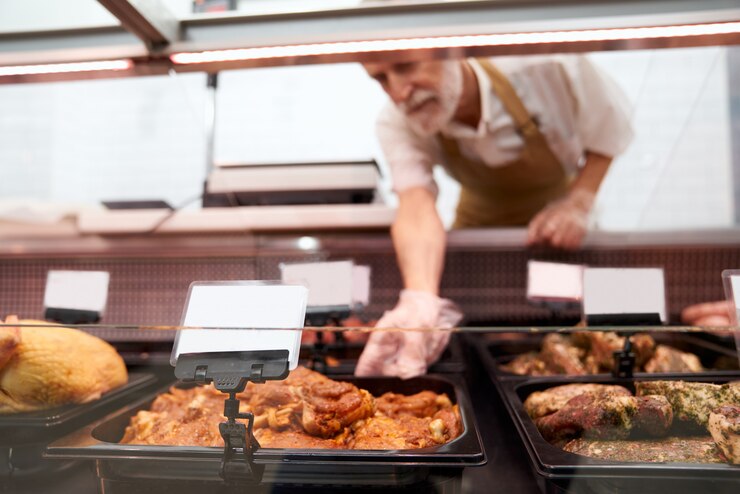Imagine the sound of bustling conversation, the sizzling of a hot skillet, and the perfume of freshly brewed coffee. These are the components that elevate eating beyond merely being a need. They are more than just sensory components. Having been deeply involved in the world of food for years, I am excited to convey the more intricate cooking aspects beyond simple nourishment. Come along as we examine the deep influence of the food service sector, learning how it forges connections within communities, honours cultural variety, and produces memorable moments that stay with us.

Communities’ Pulse
Communities are living, breathing entities sustained by the local businesses that serve as their hubs rather than merely being an assembly of buildings. Imagine your favourite family-run restaurant or local cafe where everyone knows you by name. These establishments weave the very fabric of the community’s identity and provide meals. In my travels through other food scenes, I’ve seen firsthand how these little restaurants take on their own life.
These places are more than just places to savour delicious food in small villages and busy cities. These are gathering places for the community where bonds are made, events take place, and the spirit of the community is fostered. These hidden jewels in the area have purposes beyond simply providing food, from the daily ritual of eating a quick breakfast to the celebratory banquets commemorating life’s significant events.
Variety at the Table
The food service industry’s capacity to take us on global excursions without requiring us to leave our tables is among its most alluring features. It’s about celebrating many cultures, flavours, and traditions rather than merely providing for one’s basic needs. Allow me to take you on a tour of the menu of life, a diverse selection that goes beyond well-known boundaries.
Think about the neighbourhood Thai restaurant that serves you the colourful street food of Bangkok or the quaint Italian trattoria where each dish narrates a tale from a bygone period. These gastronomic adventures aim to broaden our cultural perspectives and introduce us to new flavours. In my own culinary explorations, I’ve been amazed at how a single dish can capture a whole region’s culture, customs, and tastes.
Developing Time Spent Together
The ability of the food service sector to foster shared experiences and transform ordinary meals into treasured memories makes it magical. When was the last time you had a cosy dinner with friends, toasted to a success, or even celebrated a birthday? The unseen links that unite us are these moments shared over the dinner table.
I remember a small café hidden in a peaceful part of a city, where the thoughtful food and kind service turned every visit into a new chapter in the tale. The intangible benefits the food service profession provides us are the smiles, glass-clinking, and friendships formed over shared plates. It’s about more than simply the food—the interactions, the tales of each meal, and the conversations.
Putting Gas in the Economic Engine
Let’s focus on the food service industry’s economic relevance, sometimes overlooked amid gastronomic treats. Beyond the delicious food and welcoming ambience, neighbourhood restaurants are economic engines essential to maintaining livelihoods and promoting stability in the local economy.
Think of a busy neighbourhood restaurant’s kitchen. It’s more than simply a centre for culinary innovations—it provides jobs for cooks, waiters, housekeepers, and other staff members who keep the kitchen machinery going. Through my experiences working behind the scenes, I have witnessed how these places act as entrepreneurial incubators, allowing people to transform their passion for food into successful businesses.
The restaurant’s walls are just one part of the economic ripple effect. Local farmers provide fresh vegetables, craftspeople create distinctive tableware, and even the delivery workers dart through the streets—the food service sector creates a complicated economic web that unites people and supports many livelihoods.
Getting Used to Change: Difficulties and Solutions
Even if the food service sector is strong, change is always present. Watching the sector grow, it faces various difficulties, from changing consumer tastes to the seismic shocks of world events. For example, the current epidemic tested the industry’s resilience like never before.
Nevertheless, the food service sector showed incredible adaptability in the face of difficulty. The sector survived the storm and emerged with lessons that are redefining its future, as evidenced by the quick adoption of contactless eating and the rise in creative delivery options. The capacity to adjust and innovate when unanticipated elements are added to the mixture is similar to a skilfully prepared recipe.
The sector now has to prioritise sustainability as well. As someone very involved in the food industry, I’ve seen the move towards environmentally friendly methods. By implementing energy-efficient kitchen technologies and procuring locally grown, in-season products, the food service industry is embracing change and spearheading a sustainable future.
A Portion of Accountability
The food service sector has a heavy obligation in addition to serving plates of food. This duty reaches deep into the core of societal well-being beyond the kitchen and dining area. Having witnessed the industry’s dedication to creating a positive influence, I am motivated by its various approaches to fulfilling this duty.
Take the increasing number of programmes aimed at community outreach and sustainability. Positive change is sparked by the food service industry, which includes everything from restaurants that actively support local farmers by buying products locally to businesses that actively participate in charitable endeavours. It’s about supporting communities holistically, not simply about serving a meal.

Final Thoughts: A Gastronomic Odyssey
We have tasted the richness of ethnic diversity, embraced the shared experiences that cling to our memories, and explored the beating heart of communities on this journey through the enormous effect of the food service business. We have examined the economic undercurrents that support livelihoods and seen firsthand how resilient the sector is when faced with difficulties. Above all, the industry has accepted its obligation to improve the welfare of the societies it serves.
Thus, remember that food is more than just the flavours on your plate the next time you enjoy a meal at your preferred neighbourhood restaurant. It’s a culinary voyage made possible by the vibrant community it surrounds, the many cultures it honours, and the moments spent together. With its intricacy and versatility, the food service business does more than provide food; it nourishes communities’ spirits and leaves a lasting impression on the fabric of our lives.

